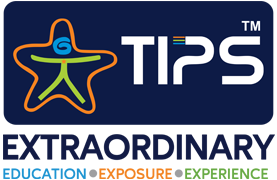- Blog By
Mrs. Anupriya Singh Moktan
Primary Staff- CBSE (English V)
The Indian Public School – Erode.
April, 22 2022 | In Blog 
What is Assessment?
Assessment serves as an individual evaluation system that reinforces the efficacy of teaching and learning. It helps to develop a deep understanding of what students know, understand, and can do with their knowledge as a result of their educational experiences. It’s also used to identify individual student weaknesses and strengths so that educators can provide specialized academic support, educational programming, or social services.

What is being Assessed?
Assessments are done for a variety of purposes in schools and educating systems:
- High-stakes assessments are typically standardized tests used for accountability—i.e., any attempt by federal, state, or local government agencies to ensure that students are enrolled in effective schools and being taught by effective teachers.
- Pre-assessments are conducted before students begin a lesson, unit, course, or introduction of a new idea, concept, or skill. They are generally used to (1) establish a baseline against which educators measure learning progress throughout a program, course, or instructional period, or (2) determine general academic readiness for a course, grade level, or new academic program that students may be transferring into.
- Formative assessments are in-process evaluations of students which are being conducted multiple times during a unit, course, or academic program. The purpose of formative assessment is to give educators in-process feedback about what students are learning or not learning and the feedback on the instructional approaches, teaching materials, and academic support can be modified accordingly.
- Summative assessments are conducted at the end of a unit, course, semester, program, or school year. Summative assessments are typically scored and graded tests, assignments, or projects that are used to determine whether students have learned what they were expected to learn during the defined period.
- Portfolio-based assessments are collections of academic work such as assignments, lab results, writing samples, speeches, student-created films, or art projects compiled by students and consistently assessed by the teachers. Portfolio materials can be obtained in physical or digital formats and evaluated to determine whether students have met the required learning standards.

Assessment is more than Grading
Instructors often conflate assessment with grading. This is a mistake. It must be understood that student assessment is more than just a method of grading. Assessments and its role link student performance to specific learning objectives to provide useful information to instructors and students about student achievement. Traditional grading on the other hand, according to Stassen et al. does not provide the level of detailed and specific information essential to link student’s performance with improvement. “Grades don’t tell you exactly about student performance on individual learning goals or outcomes. It provides little information on the overall success of a course, helping students to attain the specific and distinct learning objectives of their interest.”
How it is beneficial for a facilitator?
A child’s progress, strengths, and needs are assessed as part of day-to-day learning and teaching. Teachers keep a track of watching and listening to learners carrying out tasks, looking at what they write or make and considering how they answer questions. From time to time they will assess the plan, to record and report their progress. This will help to ensure their progress is on track and necessary action is taken to support student learning.
Difference between Assessment and Evaluation
One of the major reasons for people to get confused when it comes to using the right word at the correct spot is using interchangeable words in English which have become a common thing in today’s era. Both assessment and evaluation have meanings that are quite similar, yet have a certain degree of difference in them. Here are a few differences:
- An assessment is an ongoing process whereas an evaluation provides closure to the existing process.
- The purpose of assessment is to improve the quality of performance whereas the purpose of an evaluation is to judge the performance.
- The outcome of the assessment is constructive feedback whereas the outcome of the evaluation is to show shortcomings.





Leave a Reply
You must be logged in to post a comment.